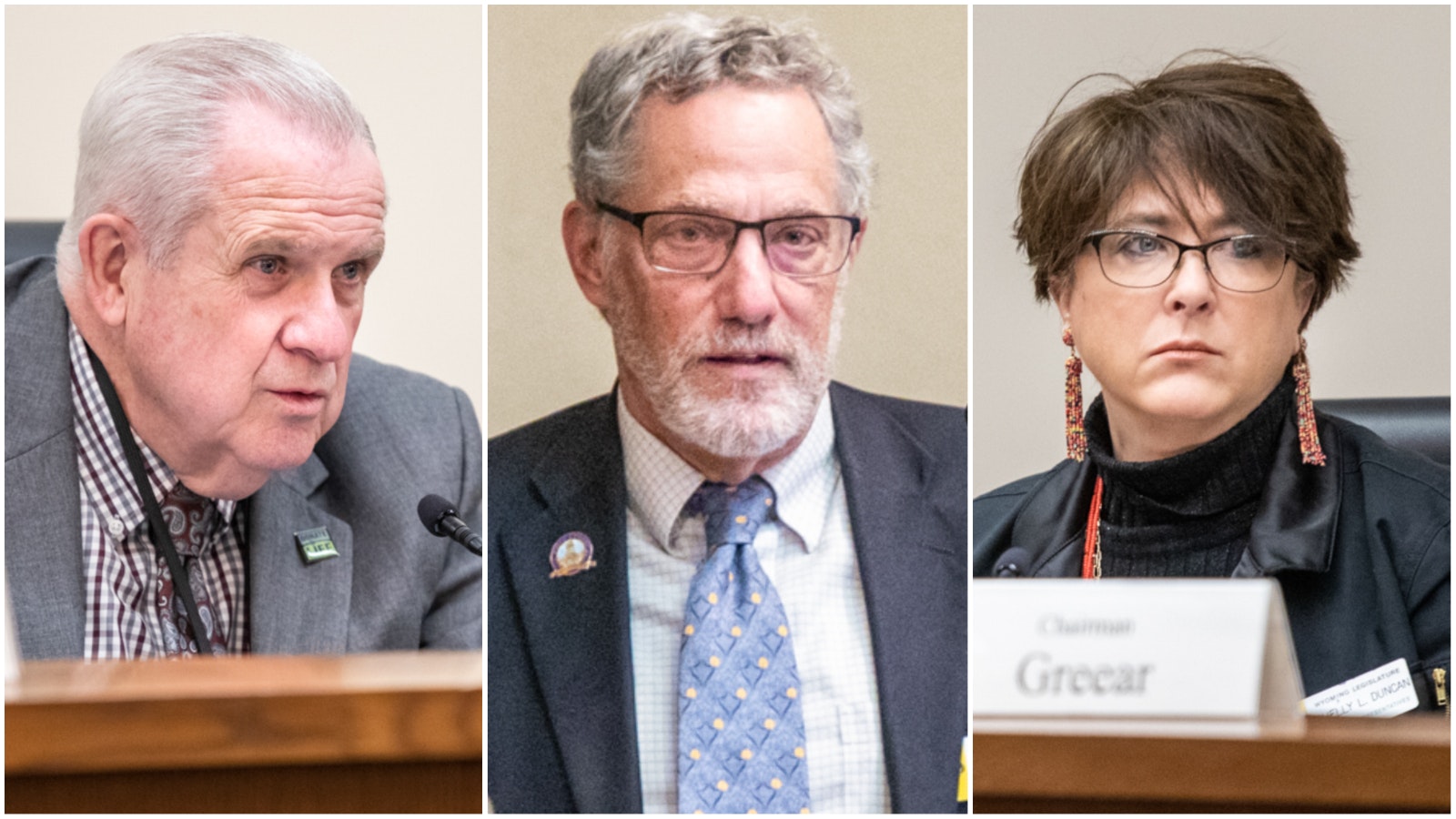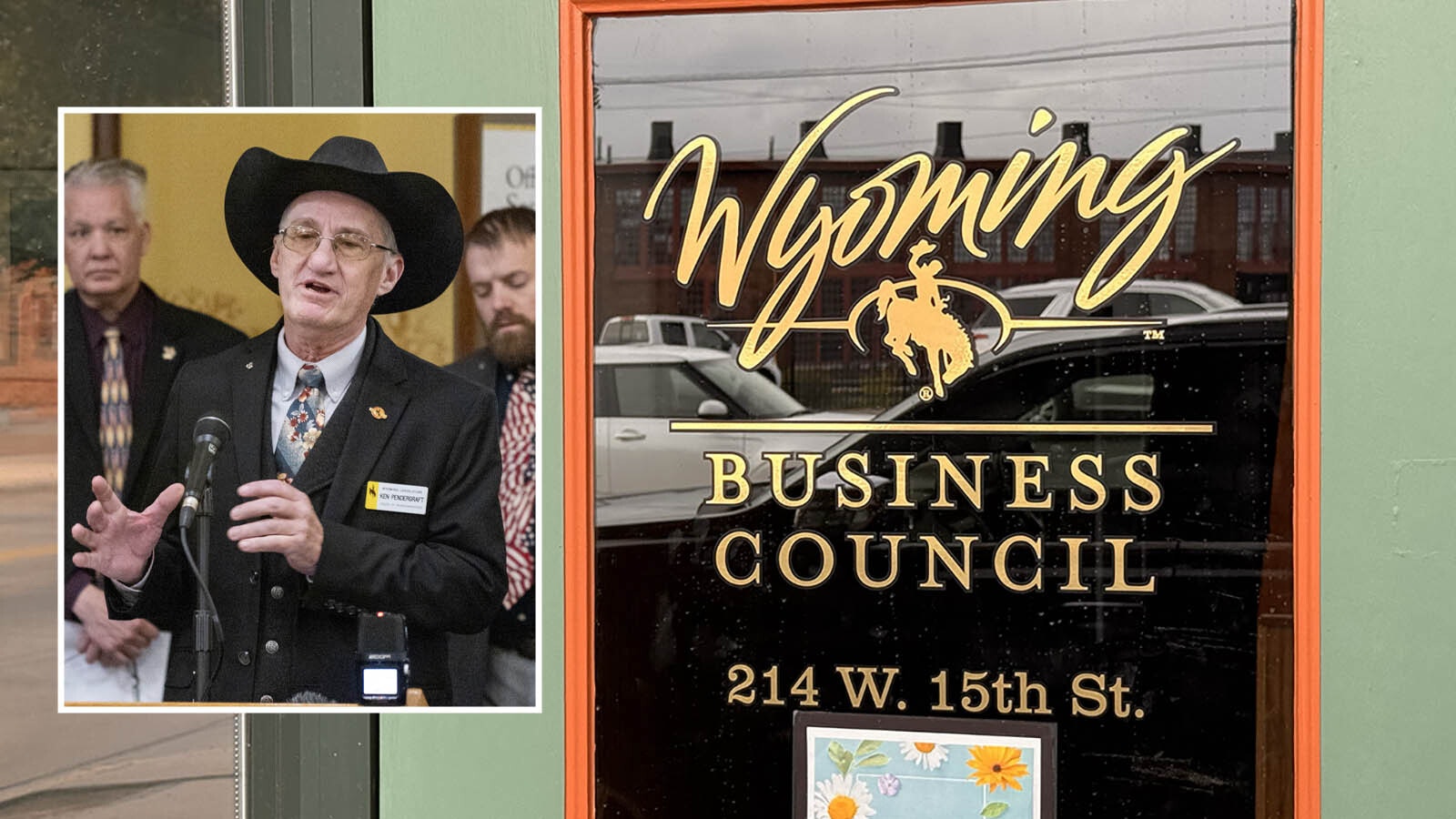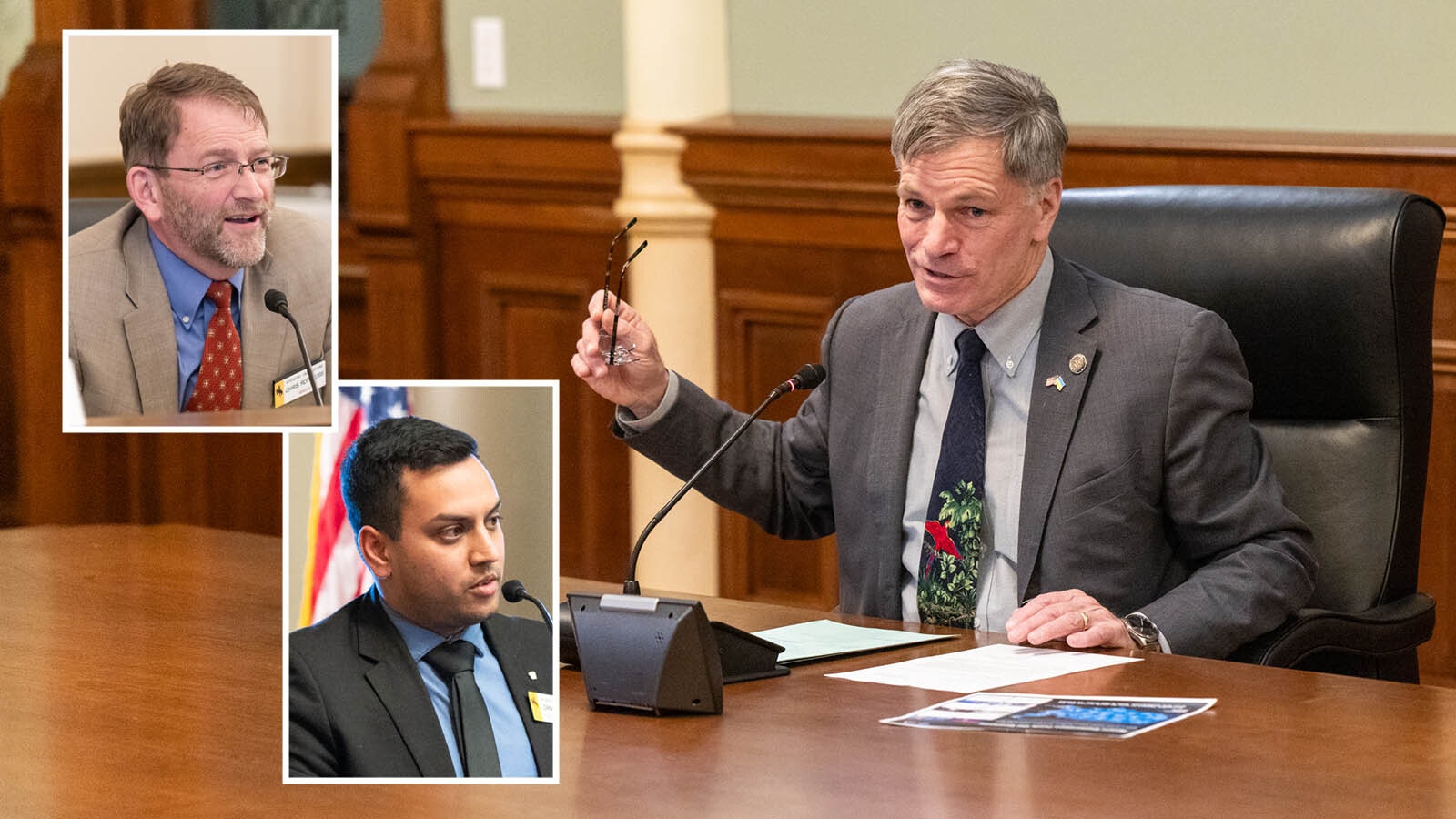The Wyoming Legislature is considering a bill that would prevent former state lawmakers from serving as lobbyists within two years after leaving elected office.
“It’s just bad optics to be legislating for a group immediately after representing the people,” said Rep. Scott Smith, R-Lingle, sponsor of House Bill 146.
Under Smith’s bill, those who violate the cooling-off period required in HB 146 could face up to $5,000 in fines.
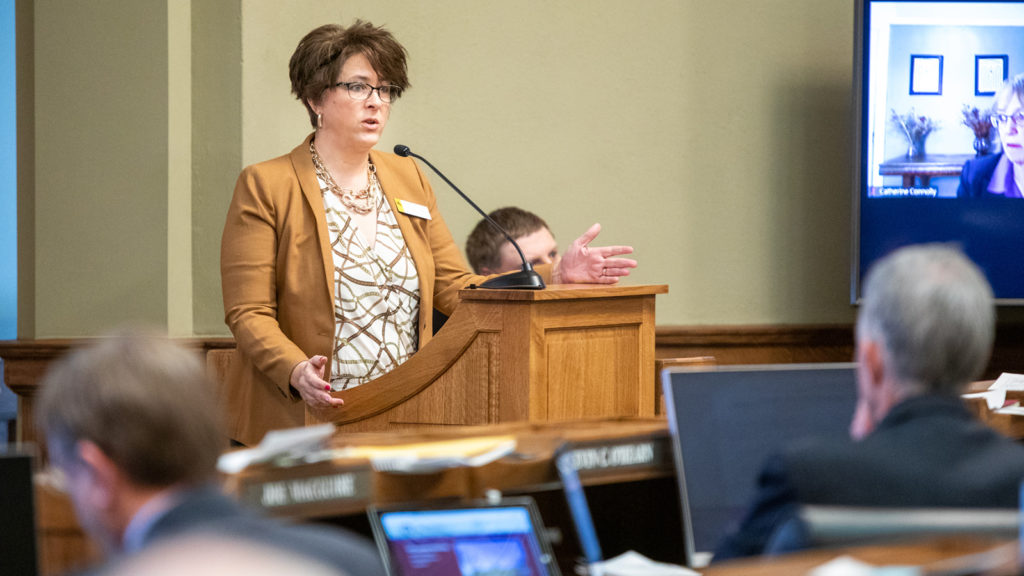
Just Looks Bad
Smith said his attention was drawn to the issue when he learned his opponent in last summer’s Republican primary, former Wyoming legislator Shelly Duncan, had become a lobbyist. Until Smith was sworn in earlier this month, Duncan was the House District 5 representative.
Jumping from elected office to then being paid to lobby other lawmakers isn’t a good look for Wyoming or the integrity of the Legislature, Smith said.
“It’s bad optics,” he said. “It’s an integrity thing.”
Duncan now is a lobbyist for Wyoming Equality, a LGBTQ advocacy group. She registered as a lobbyist with the group Jan. 4 shortly after she was a member of the state House, two days after her term officially expired.
“It makes you wonder, were you really still representing the people?” Smith questioned.
Duncan said she had ceased all legislative work after attending the Council of State Governments conference in Hawaii in mid-December.
“You won, move on,” Duncan said about Smith and his bill.
Co-sponsoring the legislation is fellow Lingle lawmaker, Republican Cheri Steinmetz.
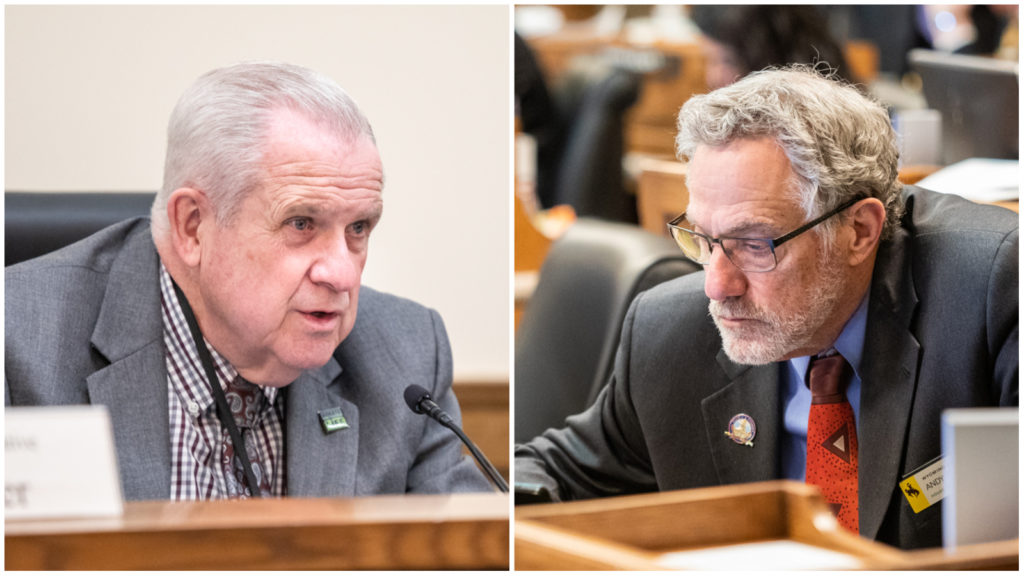
Lobbying
Many former legislators have worked as lobbyists over the years, and Duncan isn’t the only one from last year’s 66th Legislature to have already signed up as one.
She is joined by Casper Republican Pat Sweeney, who is now representing Glenrock Energy, and Jackson Democrat Andy Schwartz, who is at the state Capitol lobbying for the town of Jackson and the Wyoming Youth Services Association.
“This is my wheelhouse and that’s the majority of what I’m doing,” he said.
Another example is former legislator Nathan Winters. Winters ran for state auditor in 2018, which disqualified him from running for reelection to the state Legislature. He lost the auditor race and registered as a lobbyist that December, while he was still technically in office as a state representative.
Winters is still a lobbyist for the Family Policy Alliance of Wyoming and is seen by many legislators on both sides of the aisle as an effective ally because of his friendly demeanor.
Casper resident Bob Tarantola served as an energy lobbyist in Wyoming for more than 30 years. He said he doesn’t have a problem with HB 146, but also is neutral on the issue.
“Everyone has their own bias on issues or preferences on public policy,” he said. “But that’s not going to change for someone who was serving and then goes out and works for somebody else.”
Happens Often
It’s not uncommon for former lawmakers to serve as lobbyists in Wyoming.
Pete Illoway, who served in the Legislature from 1999-2012, is a lobbyist for the Cheyenne Regional Airport and Cheyenne Animal Shelter. Illoway said he went straight into lobbying after his term was over, which he said is the path most former legislators-turned-lobbyists take.
“It’s a good way to stay involved with the state,” he said.
Illoway is opposed to the legislation and said he finds no ethical concerns with the issue.
“I don’t think it’s necessary,” he said. “Wyoming is a small state and there’s not that many lobbyists.”
When talking with Cowboy State Daily, Tarantola quickly rattled off about 10 former legislators who have served as lobbyists, but he didn’t know the percentage of those who did or did not wait until two years after serving.
“I don’t see it as a tremendous advantage one way or another,” he said. “A lot of times when they leave, they have the ability to improve their life by being someone who is willing to represent an interest. It might be a benefit for someone to lobby quite a few years after.”
He said most people become legislators because they are particularly passionate about one or two topics. He said their high-level institutional knowledge usually makes them strong candidates to be lobbyists.
“You build those relationships, and you build your credibility with as many people as you can as soon as you show up,” he said.
Schwartz said the opportunity to become a lobbyist had no factor in his decision to retire, but “almost immediately” people started talking to him after he made the announcement. He registered Jan. 2, the day after his term was over.
Nearly all outgoing lawmakers usually wrap up their legislative commitments by mid-December of the end of their terms, but their replacements aren’t technically in office until they are sworn in. Wyoming’s new legislators were sworn in on the first day of the new session Jan. 10.
Duncan’s last committee meeting was in October.
Issues With The Bill
Smith said he has no idea how well his bill will fare, and it could face a few roadblocks.
To start, there may be ambiguity with what is and isn’t considered a lobbyist.
“Lobbying restrictions” clarifies that it does not apply to former lawmakers who are advocating on their own behalf.
According to Wyoming statutes, to”lobby” or work “as a lobbyist” means any attempt to influence legislation.
If interpreted by the black-and-white color of the law, this means anyone who testifies for the Legislature on a particular topic could be considered a lobbyist and has to register with the state.
If a former legislator didn’t register and simply argued they were working on their own behalf, they may be able to skirt the rule.
“There’s also free speech and the right to work. Where do you draw the line?” Duncan questioned.
Duncan also has been appointed as president of the WYO Help board of directors. WYO Help is a nonprofit dedicated to community outreach.
The legislation also increases fines for those who fail to register as a lobbyist from $200 to $5,000.
But that might violate the Wyoming Constitution, which states that legislators cannot take away allowances granted to public officers.
If passed, HB 146 would likely not prevent Duncan, Sweeney and Schwartz from continuing to work as lobbyists as most bills in Wyoming cannot take effect retroactively.
Context
But Schwartz said there are a handful of states that have initiated similar cooling-off periods.
In the U.S. House of Representatives, former members cannot become lobbyists until a year after their most recent term.
According to the Oklahoma Ethics Commission, in 2018, two-thirds of states have cooling-off periods for elected state officers, and about half of states extend cooling-off periods to non-elected government officers and/or employees.
Schwartz said there is a big difference between lobbyists in Washington, D.C., and Cheyenne and finds the legislation “inappropriate.”
Unlike in Washington, Wyoming’s state legislators have no official staff, so many rely on lobbyists to provide them information about topics they don’t have much knowledge about, he said.
“Getting information can be a lot of work and lobbyists here provide that information,” Schwartz said. “It’s invaluable.”
He said if a lobbyist ever gave him bad information during his seven years in office, he wouldn’t work with them again.
“A good lobbyist will tell you both sides of the issues,” Duncan said.
Ultimately Up To Lawmakers
Schwartz said a legislator must recognize the lobbyist is there to serve a certain agenda, just like certain members of the press may have an angle for a story. Legislators can listen to as many lobbyists as they please, or none if they want.
“A good lobbyist also needs to be respectful of the legislator and, by and large, I think lobbyists in this building are,” he said.
The Wyoming Capitol Club, an organization of registered professional lobbyists who lobby before the Wyoming Legislature, has not yet taken a position on the legislation.

